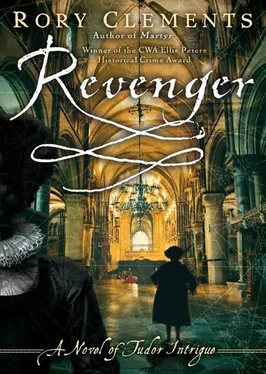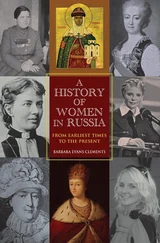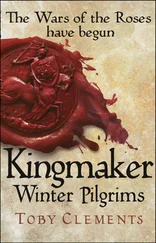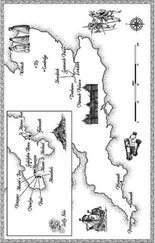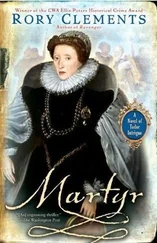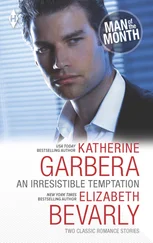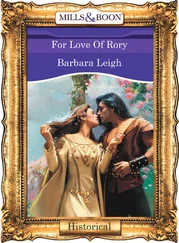“Mr. Shakespeare, I hope the Countess is keeping you well entertained. I am delighted to hear you have joined my merry band of intelligencers.”
Shakespeare rose to his feet and bowed. As far as he was concerned, he had accepted just one commission from Essex, but this was no time to argue the finer points of his employment. “My lord, it is my honor and pleasure.”
“Good man, good man. And how go your inquiries? Have you found Eleanor Dare yet? Where has she landed following her long flight from the Americas?”
“Not yet, my lord. But soon, I hope. If she is here to be found.”
“Well, keep me informed. I shall have yet more important tasks for you soon enough. But tonight, make merry. I fear it is all a little strong for my constitution, but my beloved mother and sisters would have it thus. And I dare not argue with the She-wolf. What man would? If she wants monkeys and hags, then monkeys and hags she shall have…” With that he laughed, and strode away with his curious gait toward his adoring guests.
Shakespeare watched him go and wondered, with distaste, just how long he had been poisoning his wife.

B Y MIDNIGHT, THE OUTRAGEOUS MASQUE WAS LONG finished (the Queen of the Faeries having been mounted most obscenely by her gibbering monkeys), and the celebrations were spreading from the great hall out into the gardens and even onto the river, where revelers fought mock sea battles from barges and tilt-boats, all lit by pitch torches and blazing cressets planted along the bank. Wherever Shakespeare moved, there was a different group of fiddlers and balladeers playing and singing. In the great hall, the dancing was a riot of galliards and voltas, in which young gentlemen threw their ladies high into the air and hoped to catch them.
Shakespeare watched the gaming in a side room. He had taken very little wine; he needed to preserve his wits.
Southampton and Rutland were betting large sums of gold coin against each other. Southampton plucked a diamond from a chain about his neck and planted it in the middle of the table. “This for your carriage, Roger. One turn of a card and the highest wins.”
“Very well, Henry. But I must have the idle wench turn my card.”
Penelope stepped forward and flipped up a ten. She was, thought Shakespeare, even more beautiful than when he first saw her. Her eyes darker, her hair more fair.
“Then I shall have Dorothy,” Southampton said. “Where is Dorothy?”
“My sister has retired to bed,” Penelope said.
“Retired to bed? Then she is an idler wench than you.”
“I did not say with whom she had retired to bed; nor did I say anything about sleep. ”
“God’s blood, then I shall turn it myself and be damned.” Southampton flipped another card and brought up a king. “Aha, I have your coach, Roger. The idle wench is no charm to you.”
Shakespeare wandered from the room. He had heard once that Southampton had lost five thousand pounds at tennis in Paris. It was said he had not cared about the fortune, but did care very much that he had succumbed to a Frenchman.
Casually looking about him, Shakespeare stumbled like a sot through the doorway at the far end of the hall, taking a fresh glass of wine from a bluecoat as he went. The servant showed no interest in another high-born drunk. Once outside the great hall, Shakespeare glanced around. At the bottom of the steps, there was an ornate oaken coffer, with a flickering candlestick atop its lid. Putting down his wine glass, he took the candle and cupped his hand around the flame to keep it alight, then quickly padded up the narrow winding stone stairway. He was in the square turret that housed the high room where McGunn had taken him to meet Phelippes, Mills, and Gregory. Though he was certain he had not been seen, he held back a few moments to make sure no footfalls followed him, then slipped into the room of secrets.
It was a vain hope that he would soon find what he wanted among this mass of documents. What he sought were pointers to the layout of the place, the possible location for the information he needed. He knew that Walsingham would have collected extensive files on both Arbella Stuart and the Earl of Essex. It was a matter of narrowing down the search area. If he knew where to look, he could return here on other days.
When Cecil had given him the commission, he had had doubts. Those had been swept away by this evening’s revels. There was something rotten here, a brazen contempt for the established order. Neither Essex, his haughty mother, Lettice, nor those around them cared who knew it. They were imperious, so sure of their high status that they felt themselves immune to the normal laws of the land. This court of Queen Lettice was, indeed, like a court-in-waiting.
Shakespeare put the candle on a table. Working at speed, he moved with method along the shelves and piles of papers, taking down a document at a time, scanning it for any possible relevance and then replacing it. It soon became apparent that there was some sort of order here. Documents and correspondence from Rome were stacked together; so were the intercepts from Madrid and, likewise, Paris and the Netherlands.
What he needed was a home section. That must be where-if anywhere-he would find what he wanted. To the left of the tall oriel window, at the east of the room, was a table laden with charts. To the left again was a stack of large leather-bound books, all upright and leaning against each other. Above them was a series of shelves. He reached up to these shelves and took down a small packet of papers at random. He quickly looked through it. There was correspondence from Walsingham’s old intelligencers from years ago; Shakespeare recognized the names: Poley, Berden, poor Harry Slide, knifed through the throat in a Southwark whorehouse. Shakespeare flinched at the memory and put the packet of papers back where he had found it. He took another pack from the shelf above. This was more promising: a letter from the Earl of Shrewsbury concerning the daily routine of Mary Queen of Scots. The letter was dated December 1586, just two months before her execution. Shrewsbury, who had died a few months after Walsingham in 1590, had been Bess of Hardwick’s estranged husband.
Shakespeare read quickly. The letter warned Walsingham of his wife’s ambitions for her granddaughter Arbella. “I fear, Frank, that the girl will heap much trouble upon our family. She makes the girl a shrew, in her own image.”
He heard a faint noise. Soft footsteps on the stairs coming up to the room. He thrust the packet of papers back onto the shelf and snuffed the candle. The darkness was intense, but he knew where he was going. Carrying the candlestick with him, he edged further left, where there was a doorway into an adjoining chamber. The door to the room was ajar and he slipped into the room. In the darkness, instinct took over. His heart pumped fast and yet he was utterly calm.
Crouching like a hunting cat, he slid backwards into a small space between the cold stone wall and a settle. Shakespeare was a tall man, but he was small now, consciously shrinking into himself, and ready to pounce.
The footfalls were closer, in the main turret room. Through the slightly open door he saw a flicker of light. He heard a light sniffing noise; whoever was there could smell the snuffed candle. Yet he or she had a candle of their own and could not be sure whether it was the guttering flame of that one which they scented.
For a moment all was still. The hunter stood motionless, listening for breathing or a slight sound. Shakespeare, too, was completely still, every muscle tensed. The flickering light moved close toward the doorway, then stopped again. There was something dark and strange about this presence. Why did the man-he was now sure it was a man-not cry out “Who is there?” like any normal watchman? Why maintain this ghostly silence?
Читать дальше
